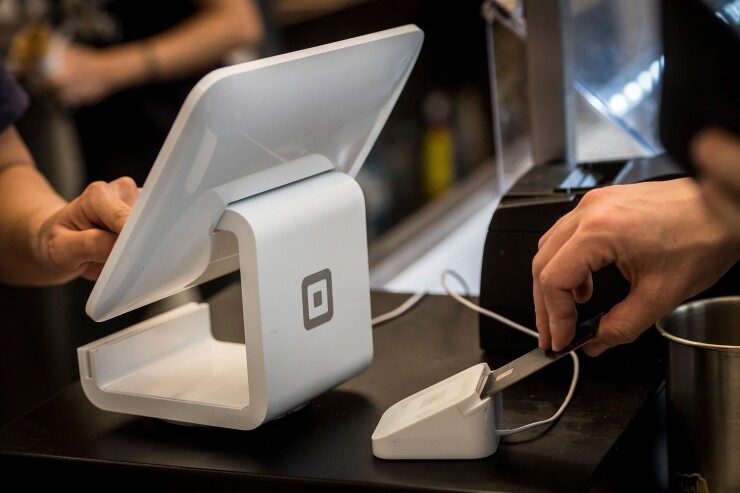WASHINGTON — Thirty-seven community groups are jointly asking the Federal Deposit Insurance Corp. to reject Square’s landmark application to become an industrial loan company.
The groups, led by the California Reinvestment Coalition, submitted a letter Feb. 19 after the FDIC extended its comment period on Square’s application to form an ILC based in Utah. The letter raises concerns about Square’s business loans and its plan to comply with the Community Reinvestment Act, arguing the current proposal is weak. The groups are asking the FDIC to further extend the comment period, hold public hearings in California and to bolster the fintech's CRA requirements if the agency decides to move forward with the charter.
Before this letter from community advocates, nearly all of the 15 letters the FDIC received

“Given that the application was filed over the holiday season, and that numerous issues have been raised but not addressed, we request an extension of the comment period and that the FDIC hold public hearings in San Francisco and Fresno California,” the CRC and others said in the letter. “The FDIC must not approve of this application without imposing substantial conditions on Square, or else the FDIC will risk becoming the agency of choice for questionable fintech firms that seek a pathway to the cheap funding source, preemption protection, and other benefits that a bank charter may provide.”
While several fintechs are attempting to form a federal bank through different regulators, Square is the furthest along after it strengthened and resubmitted its ILC application with
A key concern from groups like the CRC is how the FDIC would apply CRA conditions to online lenders when the 1977 law is based on lending to communities surrounding the bank’s physical locations and headquarters. Payments firm Square is based in San Francisco but would place its ILC headquarters in Utah, which concerns the community groups in California.
“Essentially, money will be diverted from diverse small businesses and communities in California and elsewhere, to small businesses and communities only in Salt Lake City,” said the letter led by the CRC. “This is an issue that should concern state and local jurisdictions, as well as communities, where Square is located, doing business, profiting, and expecting to take deposits, but not reinvesting.”
The FDIC also received strong opposition from Matthew Lee, executive director of Inner City Press, a public interest group based in New York.
“This re-submitted proposal, if approved, would make a mockery of the Community Reinvestment Act,” Lee said in the letter submitted Feb. 18. “The FDIC should hold public hearings, and on the current record deny the application.”
Lee's concerns are echoed by the Independent Community Bankers of America, which has long argued that the ILC charter creates loopholes because it does not subject the parent company to Bank Holding Company Act restrictions. The ICBA previously objected to Square’s application in the initial batch of the 15 comments before the FDIC extended the comment period.
Still, the CRC-led community groups opposing the charter acknowledged in their letter that Square representatives recently met with them to try and address concerns. Square also submitted a supplemental CRA plan to the FDIC that is meant to be national in scope. But, the groups said, Square should demonstrate a stronger commitment to CRA by expanding its analysis to the top 10 to 20 markets where it does business, not just basing it on loans that will be sent to the Salt Lake City headquarters.
Square “will certainly know in the future where those small business and consumer deposits come from before it designates them as received in Salt Lake City,” the letter said. “The FDIC charter and current CRA regulations may complicate this dynamic, but nothing prevents Square from making concrete commitments to these communities, which it fails to do.”





